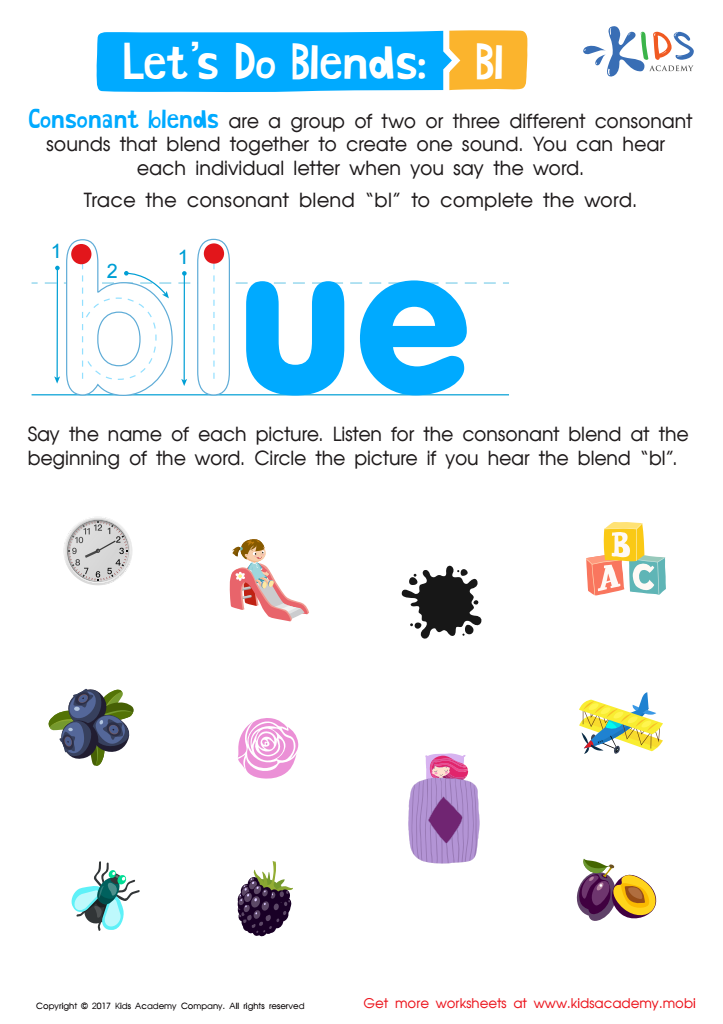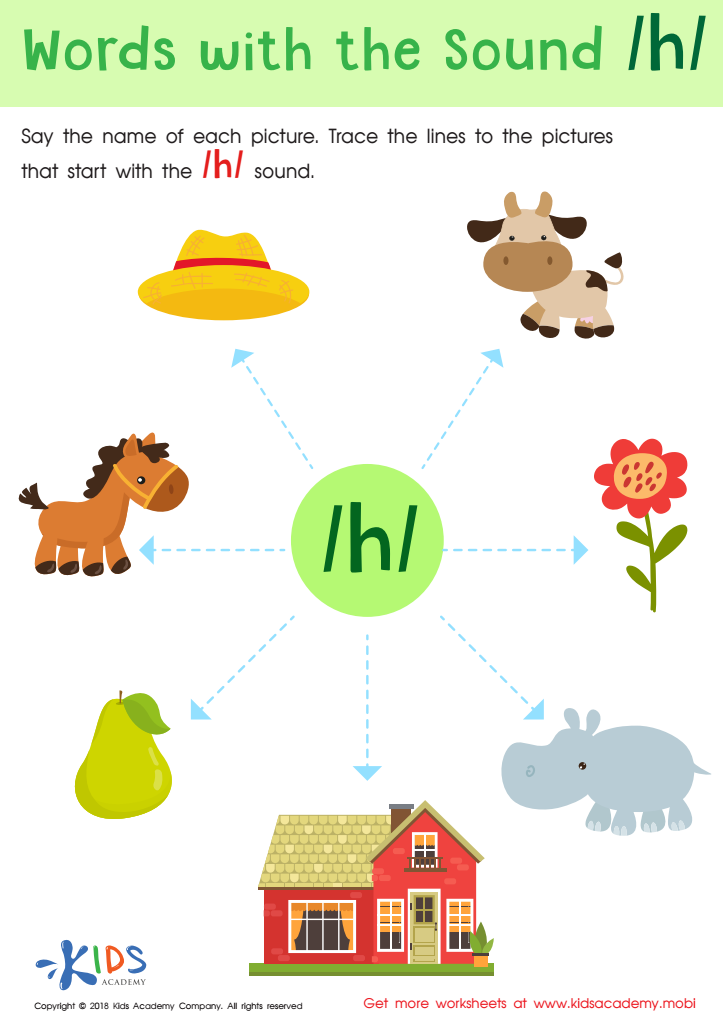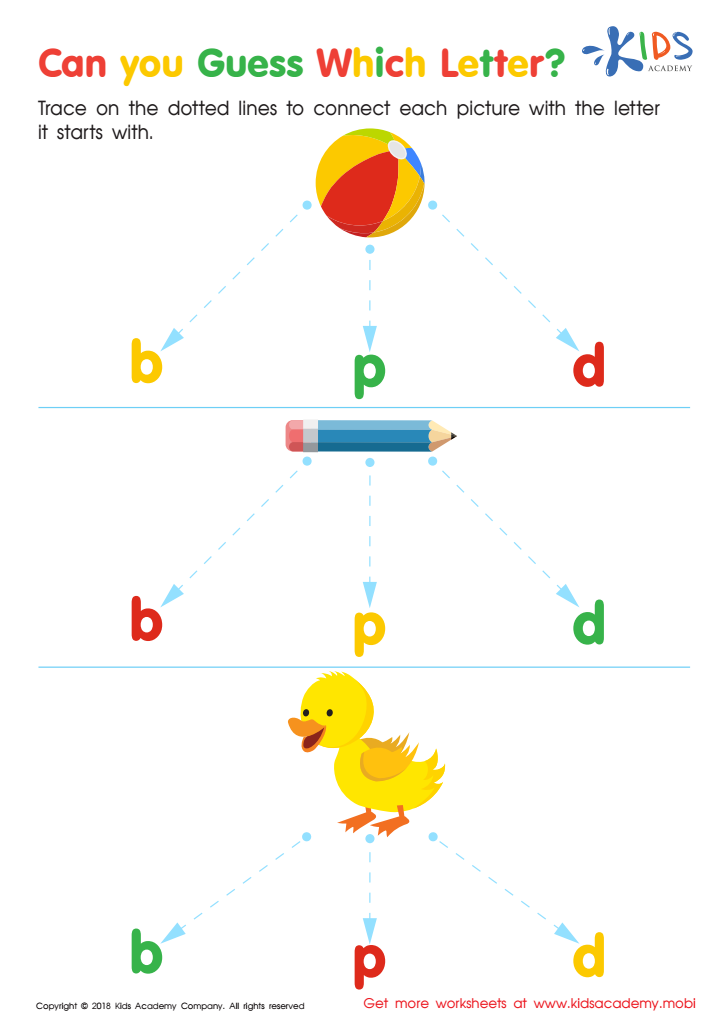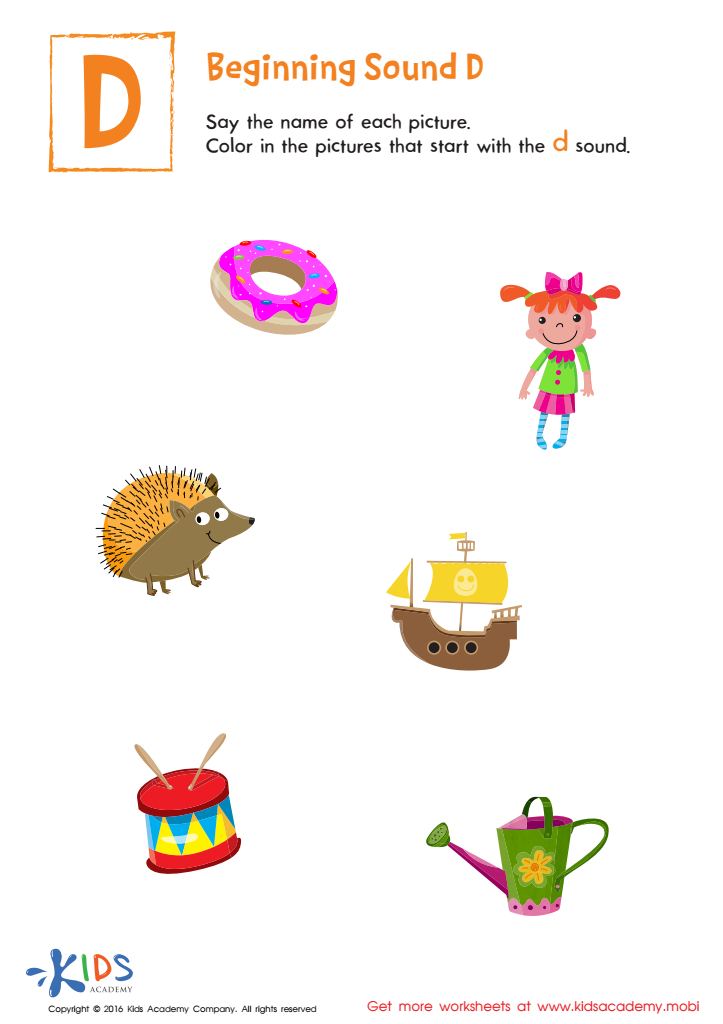Vocabulary expansion Normal Beginning Sounds Worksheets for Ages 5-7
5 filtered results
-
From - To
Enhance your child's vocabulary with our engaging Normal Beginning Sounds Worksheets designed for ages 5-7! These fun and interactive resources help young learners recognize and practice beginning sounds while expanding their vocabulary skills. Each worksheet features colorful illustrations and exciting activities that motivate children to identify and pronounce words that start with various sounds. Perfect for at-home learning or classroom use, our worksheets promote phonemic awareness, essential for reading success. Encourage your child’s language development today with our targeted exercises that make learning enjoyable. Visit our website to explore a wide range of vocabulary expansion tools. Help your child thrive with early literacy skills!


Beginning Blends: "Bl" Words Worksheet


Words with sound h Reading Worksheet


Can you Guess Which Letter? Worksheet


Words with sound f Reading Worksheet


Beginning Sound D Worksheet
Vocabulary expansion during the crucial ages of 5-7 is vital for young learners as it significantly influences their overall language development, literacy skills, and academic success. At this age, children are rapidly acquiring language skills, and focusing on normal beginning sounds helps in building a strong foundation for both reading and speaking.
When parents and teachers emphasize early vocabulary expansion, they enhance children's phonemic awareness—the ability to recognize and manipulate sounds in words. This is essential for reading, as understanding the intrinsic structure of language enables learners to decode new words efficiently. Engaging children in activities that encourage vocabulary growth encourages a love for words and positive reading habits.
Learning new vocabulary expands children's understanding of the world, fostering critical thinking and effective communication. Additionally, it equips them with the language skills needed for social interactions, allowing for better relationships with peers and educators.
Furthermore, a robust vocabulary contributes to a child's confidence when expressing their thoughts and ideas, making it easier to engage in classroom discussions. Ultimately, the early investment in vocabulary through focused activities can set children on a path to lifelong learning, successful communication, and enhanced academic performance. Parents and teachers play a pivotal role in this foundational process.
 Assign to My Students
Assign to My Students














